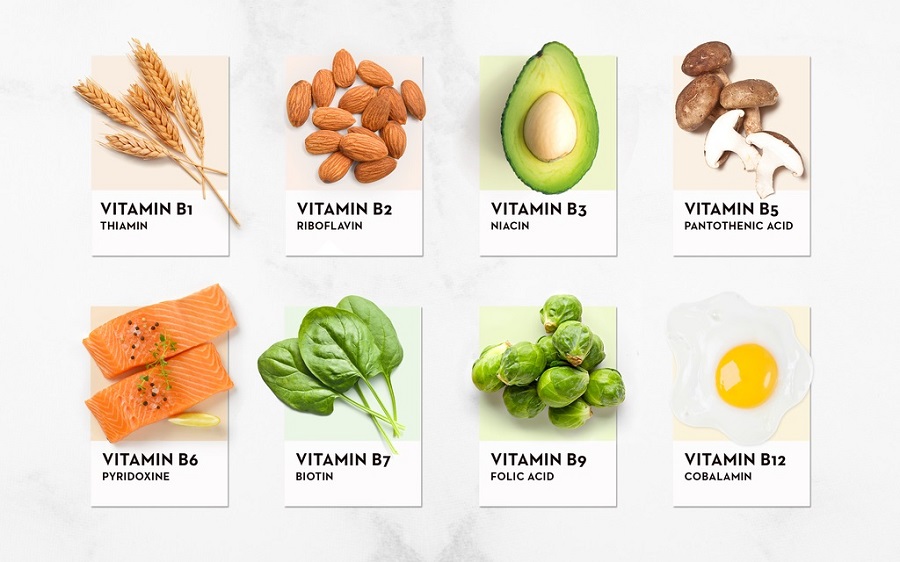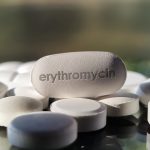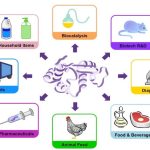The B complex of vitamins contains eight vitamins that work together to help your body produce energy from nutrients in your food. Two members of the B complex, vitamin B2, or riboflavin, and vitamin B12 are also important in helping keep you generally healthy. A deficiency in either of these vitamins can be a cause for serious concern but it is one that you can avoid by eating a healthy, well-balanced diet.
Vitamin B2
Your cells need vitamin B2, also called riboflavin, for many biochemical reactions, including several that help derive energy from carbohydrates, fats and proteins. It also helps your body absorb iron, a metal needed as part of hemoglobin in your red blood cells. Riboflavin also protects you from free radicals by activating several enzymes that help your body rid itself of these potentially damaging chemicals. Free radicals form as natural byproducts of digestion or after you are exposed to environmental toxins such as cigarette smoke or some industrial chemicals. They also develop in your eyes and skin when you are in sunlight. Over time, accumulation of free radicals can speed aging and raise your risk of cancer and other diseases.
Deficiency and Sources
A deficiency in riboflavin can cause a number of symptoms, including redness and swelling in your throat, mouth sores or tongue inflammation and scaly patches on your skin. It can also cause eye problems such as clouding of your corneas, as well as a low red blood cell count that can lead to anemia. The Recommended Dietary Allowance, or RDA, for riboflavin, is 1.1 and 1.3 milligrams daily for adult women and men, respectively. The RDA is slightly more during pregnancy and breast-feeding. Rich food sources of riboflavin include organ meats, such as beef liver, with about 3 milligrams in 100 grams or an average-sized slice. Other good sources include wheat germ, soybeans, dairy products, eggs and vegetables such as Brussels sprouts and broccoli.
Vitamin B12
Vitamin B12 is also called cobalamin because it contains cobalt, a metal. Along with vitamin B2, it helps produce energy from nutrients and supports production of new red blood cells to replace old, worn out cells. It also helps your nervous system function properly and supports DNA synthesis. Vitamin B12 is also needed for an enzyme called methionine synthase to function. This enzyme coverts an amino acid called homocysteine into methionine, a slightly different and harmless compound. The Office of Dietary Supplements reports that keeping blood levels of homocysteine low may have significant benefits for your cardiovascular system, since high levels of the compound could promote changes in your blood vessels that can raise your risk of heart disease.
Deficiency and Sources
The RDA for vitamin B12 is 2.4 micrograms per day for adult men and women, and slightly more for pregnant and breast-feeding women. Generally found in meat-based foods, clams are among the richest sources of the vitamin, with over 80 micrograms in a 3-ounce serving. Other good sources include beef liver, fish such as trout, salmon, and tuna, dairy products, eggs, meats and poultry. Although plant-based foods are not natural sources of vitamin B12, cereals and breads are often fortified with this and other B vitamins. A mild deficiency in vitamin B12 may cause no symptoms, but a serious deficiency may lead to neurological problems such as tingling and numbness, disorientation or dementia, as well as a condition called megaloblastic anemia, which causes weakness and weight loss.


